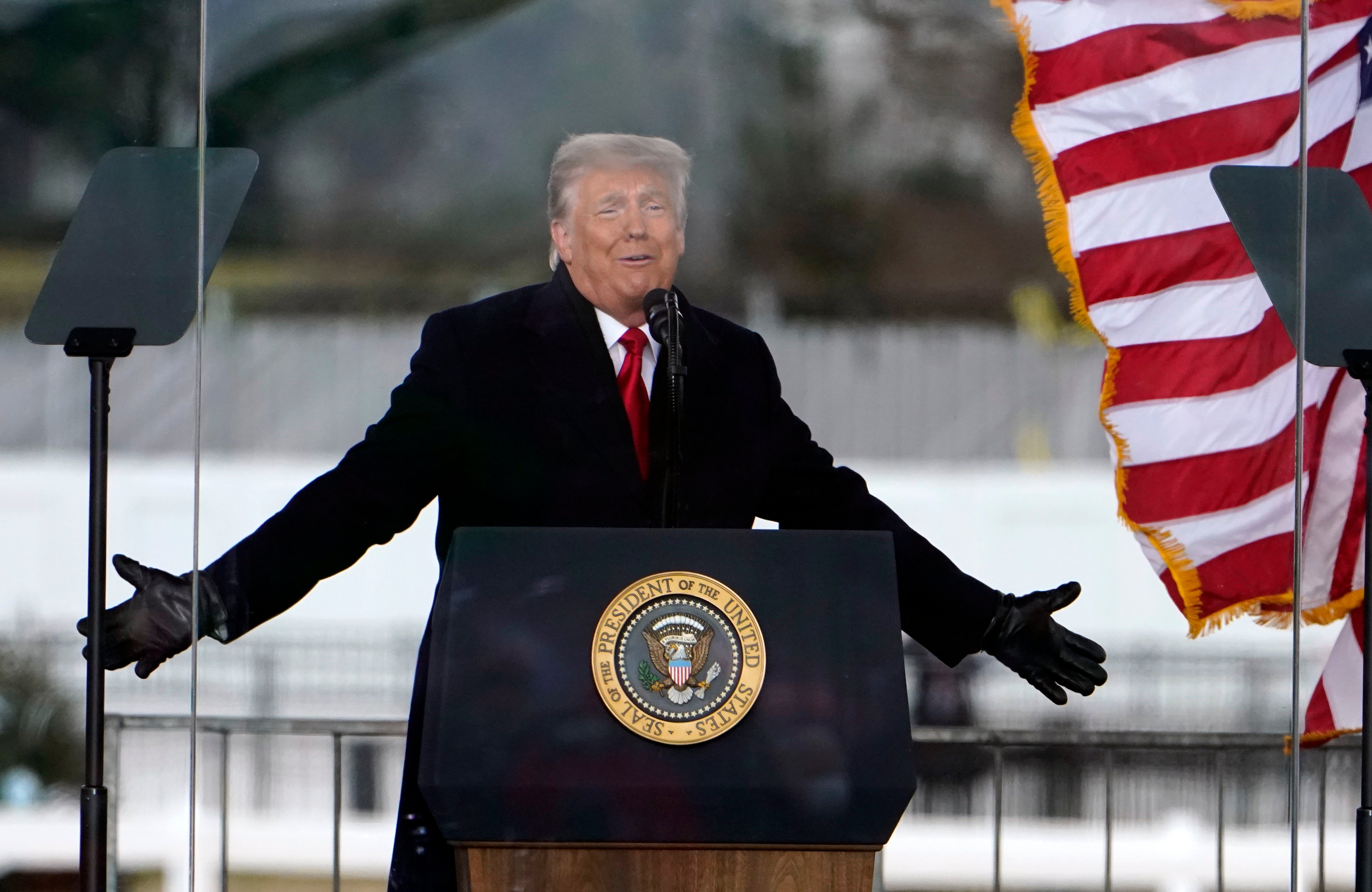The big tech companies are right to ban Donald Trump from their platforms
Editorial: The president’s praise of the rioters crossed a line that justified an exceptional response from Twitter and Facebook – he is of course entitled to go to the courts to argue his free speech case

Twitter, which Donald Trump exploited ruthlessly to win the presidency, has pecked back. Jack Dorsey, the chief executive of the company that provided Mr Trump with a platform, has closed the president’s account. While the practical effect of the ban is limited, with just 10 days of Mr Trump’s term of office to run, the questions of principle that it raises are profound.
Twitter’s decision is welcome as further acceptance by an internet company of responsibility for things that are posted on its website. Long gone are the days when the tech giants could pretend that they were merely providers of a service and what their customers did with it was not a matter for them.
Twitter started marking Mr Trump’s tweets as “disputed” when the president used them to make unfounded claims about the election after 3 November. During the storming of the Capitol, Twitter suspended Mr Trump’s account, and Facebook (and its subsidiary Instagram) followed suit. Both companies recognised that the president was using their platforms to incite violence. Now Twitter has gone further and banned Mr Trump altogether.
The Independent is a resolute defender of free speech, which has always been subject to limits, and the promotion of violence is one of the most important of those boundaries. So we are pleased that the tech companies take their responsibilities seriously, while remaining concerned about the question of accountability.
It has been argued in some quarters that private-sector companies have no right to interfere with the free speech of elected politicians. We believe that this confuses two issues. As it happens, we think that Facebook and Twitter have made the right judgement in this case: that Mr Trump’s praise of the rioters crossed a line that justified an exceptional response. But we hope that if the companies made decisions with which we disagreed, the law would protect the right of free speech, both in the United States and in Europe.
If Mr Trump feels, for example, that his first amendment right of free speech has been infringed, he is entitled to go to the courts to try his luck. Just as we hope that the courts here or in the rest of Europe would enforce the right to free expression in article 10 of the European Convention on Human Rights.
As for Mr Trump being an elected politician, that should confer on him no greater right to free speech than anyone else. Indeed, it has also been argued in some opposite quarters that Facebook and Twitter are cowards for acting only now, when they know that Mr Trump’s power is draining away – and that they should have banned him earlier.
This is unfair, because it is only since he lost the election that the president has finally gone too far. He has previously been offensive, such as when he refused to condemn white supremacists in the TV election debate, but he has also usually been sufficiently ambiguous to cover his tracks (“I don’t know who the Proud Boys are”).
Since his election defeat, his repeated insistence that the vote was “stolen” has been quixotic and dangerous, but we should be reluctant to define that in itself as an incitement to violence. Twitter probably got it broadly right by marking patently false claims clearly as such.
It was when Mr Trump continued to use his Twitter account to urge on the violent mob who were trying to obstruct democracy that deactivating it was justified.




Join our commenting forum
Join thought-provoking conversations, follow other Independent readers and see their replies
16Comments